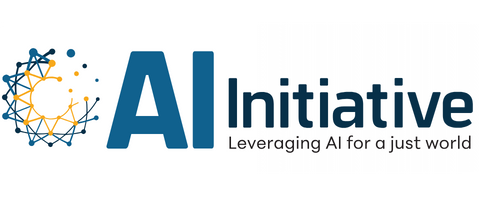Making African AI Visible: When "Not Found" Doesn't Mean "Doesn't Exist"

A ShockLab Seminar with Chris Emezue
Watch the Full Seminar Recording on YouTube
During the ShockLab seminar of 5 November 2025, Chris Emezue from Lanfrica Labs revealed a challenge hiding in plain sight: African AI contributions remain largely invisible to the global community, not because they don't exist, but because they cannot be found.
Try searching Google for "Ibibio machine translation dataset." You'll likely get: "There are no widely recognized datasets for Ibibio." But as Chris demonstrated live during the seminar, this dataset actually exists - 1,820 lines of carefully translated data, published openly years ago. The catch? It's hosted on Google Sheets, making it essentially invisible to conventional search.
This is the discoverability gap.
Chris opened with a striking metaphor: standing in the Sahara Desert with vast expanses in every direction but no clear path forward. This captures AI in Africa, a landscape that is siloed across 50+ countries and 2,000+ languages, fragmented across repositories, and scattered from university libraries to personal Google Drives.
The reality, as Chris revealed: "There's so much abundance when it comes to AI in Africa, it's just not in the way that we're expecting or in places that we're expecting them to be."
Rather than demanding African resources conform to Western standards, Lanfrica focuses on findability - a crucial layer above accessibility that most platforms ignore.
Chris demonstrated the platform live, showing how it maps Africa's AI ecosystem through metadata-driven discovery and network-building. The approach is elegant: Lanfrica doesn't host data; it harvests metadata, organises it systematically, and points users to original sources. This respects ownership while creating visibility.
An interesting comment from Prof Jonathan Shock revealed that at UCT alone, four different groups working on MRI data were completely unaware of each other's work. The findability problem isn't just continental - it's institutional.
Watch the Full Seminar
The recording includes Chris's live platform demonstration, technical Q&A about metadata harvesting approaches, discussion of privacy and proprietary data challenges, and insights on practical collaboration opportunities.
Watch now to see how Lanfrica is unlocking breakthroughs in inclusive science and technology by solving the discoverability problem.
About the Speaker: Chris Emezue is a mathematician and computer scientist who has spent five years designing inclusive AI technologies for African populations. His research spans natural language processing, causality, and reinforcement learning at the University of Montreal and Mila.
ShockLab Seminar Series explores cutting-edge topics in AI and computational science. For more information: jon.shock@gmail.com
Learn more: https://lanfrica.com/en
